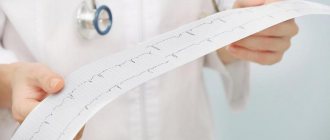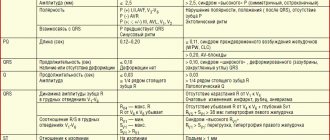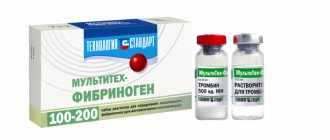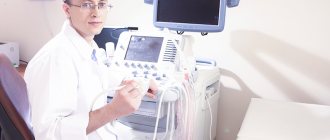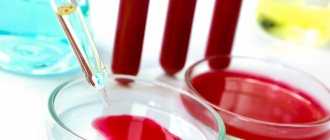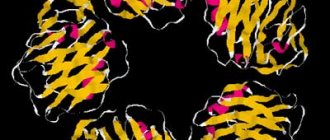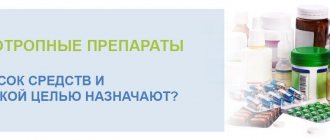- If you're feeling anxious before a medical exam, you're not alone.
- What will happen during the medical examination?
- What does the therapist check?
- What does the surgeon check?
- What does a neurologist check?
- What tests are taken during a medical examination?
- What is blood tested for?
- Is it possible to smoke and drink coffee before a medical examination?
- Medical examination results
When going for a medical examination or medical examination, you need to take with you:
- Passport.
- Glasses, contact lenses, hearing aids if you use them.
And also, if there is:
- A letter from the employer indicating the name of the company, profession, and severity.
- Certificate of registration or military ID, if you are liable for military service.
- Results of fluorography performed no more than a year ago.
- Medical documents if you are registered with a doctor.
Dear patients! A urine test is required to undergo a medical examination. Please bring the prepared material in a container with you, since due to the difficult epidemiological situation, urine test collection in the clinic is prohibited. A container for collecting urine can be purchased at any pharmacy.
What will happen during the medical examination?
It depends on the nature of the job and the organization where you are going to work. At a minimum, you will be required to fill out a form and undergo a medical examination. Depending on the type of job, the examination includes various medical tests and tests. The list of doctors for the medical board may vary depending on the category of workers. As a rule, you need to visit:
- therapist;
- surgeon;
- neurologist;
- ophthalmologist (ophthalmologist);
- ENT doctor (otolaryngologist);
- for women - examination by a gynecologist.
You may also need to be examined by an endocrinologist, cardiologist, dentist, dermatologist and other specialists. Based on the results of the examination, the doctor may refer you to other specialists. The scope of the examination in each case is different and depends on the nature of the work - the possible negative impacts that may arise. For example, industrial noise, vibration, work at height, work in stressful situations and overloads, work at night.
A medical examination allows you to hire employees who are physically capable of performing official duties. In certain industries, passing a medical examination is extremely necessary. For example, when hiring industrial climbers, rescuers, and public transport drivers. For certain types of work, it is important to assess the mental and emotional stability of employees. Such medical examinations are of vital importance, for example, if the work is related to the responsibility for ensuring the protection and safety of citizens and carrying weapons.
Fines for failure to conduct a medical examination in an organization
Is it generally necessary to undergo a preliminary/periodic medical examination? If an employee was allowed to work without undergoing a medical examination, or with identified contraindications for this type of activity, the employer must bear responsibility for this and pay a fine in the amount of:
- 15,000 - 25,000 rubles per official;
- 15,000 - 25,000 rubles for an individual entrepreneur;
- 110,000 - 130,000 rubles per legal entity.
If an employee is hired again without a medical examination, the penalties increase:
- 30,000 - 40,000 rub. or disqualification for 1-3 years for officials;
- 30,000 - 40,000 rubles for individual entrepreneurs or administrative suspension of activities for up to 3 months;
- 100,000 - 200,000 rubles or suspension of the organization’s activities for a period of up to 3 months.
If an employee has not passed a preliminary/periodic medical examination, then the employer has the right not to hire/dismiss such an employee.
What does the therapist check?
During your appointment, the therapist will ask you about your health, find out if you have any complaints, if you suffer from any chronic diseases, what kind of lifestyle you lead, and if you have any bad habits. If you are concerned about any symptoms, your doctor will ask how long ago they started, when they usually start or worsen, and whether they have changed over time. Then the inspection takes place. It consists of standard procedures: measuring blood pressure, pulse rate, listening to the lungs and heart using a phonendoscope, and examining the throat.
How to correct a bad ECG
It is worth understanding that a poor ECG is associated with changes in the heart. That is, it is necessary to influence the reasons why the heart does not work well. This can only be done based on the clinical diagnosis.
The results of the ECG procedure will improve only if the body’s condition stabilizes
After examining an adult or child, the doctor prescribes medications aimed at improving heart function. The effect of these drugs is limited to a positive effect on metabolic processes in the heart muscle. A similar step is taken to calm nervous patients. At the medical examination, medications are not prescribed at all, and the employee is sent to the clinic.
Drugs aimed at improving metabolic processes in the heart are not prescribed in countries of the developed world and are not included in treatment regimens there, since their effectiveness is not considered proven.
What does the surgeon check?
If most people perceive the upcoming examination by a therapist calmly, then when going to see a surgeon, many are nervous. In fact, there is no need to worry, nothing terrible will happen in the doctor’s office. The examination is carried out in almost the same way as with a therapist, the difference is that surgeons look for other pathologies. The appointment begins with a conversation, asking about general health, complaints, symptoms, previous illnesses and chronic diseases. Then the surgeon will most likely ask you to undress from the waist up and take off your socks. The doctor will examine the skin to identify pathological formations on it, feel the abdomen, subcutaneous lymph nodes, check the legs for swelling and varicose veins, and determine joint mobility.
What will the ECG show?
The study, as a safe and effective procedure, is prescribed to all people without exception. An ECG allows you to promptly identify cardiovascular pathologies and select the correct treatment.
A cardiogram makes it possible to determine the following features:
- heart rate;
- myocardial wall thickness;
- disturbance of potassium and magnesium metabolism;
- myocardial damage;
- quality of the pacemaker;
- source of pain in the heart area (caused by heart disease or other pathologies).
If the patient has been properly prepared for taking an ECG, the procedure allows you to diagnose:
- arrhythmia;
- tachycardia;
- cardiomyopathy;
- coronary heart disease;
- pericarditis;
- heart attack
What does a neurologist check?
Nothing special here either, the doctor performs a standard neurological examination. He will evaluate your posture, gait, facial symmetry, ask you to follow the hammer with your eyes, frown your eyebrows, bare your teeth, stick out your tongue. This will be followed by checking muscle tone and strength, and skin sensitivity using a special non-sharp needle. Then the doctor will use a hammer to check your reflexes, ask you to stand up, close your eyes, stretch out your arms, and touch the tip of your nose with your right and left index fingers.
As you can see, there is nothing scary or supernatural in medical examinations. Every doctor performs standard, basic procedures. The doctor’s goal is not to find you at any cost with a disease that could be a reason for dismissal. If you discover the first symptoms of incipient diseases, you will not be fired, but this will give you the opportunity to take timely measures to maintain your health and ability to work.
ECG: what the study will show and why it is needed
An ECG is a non-invasive study of the work of the heart muscle over a certain time. The procedure is carried out using special electrodes that are attached to the chest at certain points. They capture the subject's heart impulses, amplify them and transmit them to a galvanometer. These signals are recorded by a recording device in the form of jagged lines.
The height and duration of the teeth must correspond to the established norm. Any deviations indicate the development of heart problems. An experienced doctor is able to make the correct diagnosis based on the results of the cardiogram.
What tests are taken during a medical examination?
Mandatory medical blood tests during a medical examination:
- general blood analysis,
- biochemical blood test for glucose and cholesterol.
Mandatory diagnostic procedures:
- general urine analysis;
- electrocardiography (ECG);
- fluorography, if it was last performed more than a year ago;
- for women: bacteriological and cytological examination;
- for women over 40 years old: mammography, ultrasound of the mammary glands.
If you are taking medications, tell your doctor as this may affect urine laboratory tests.
How can you improve your ECG?
Treatment methods apply to patients with the second group of reasons affecting the ECG condition. If no heart disease is detected, but the ECG remains unsatisfactory, you must carefully prepare to get the desired results. An unsatisfactory ECG may be due to functional disorders that do not require treatment. What can you do to increase the likelihood of good results?
Improving ECG results is possible with the correct regimen and the necessary preparation
Many doctors who are only indirectly associated with cardiology believe that there is no need to prepare the patient for the procedure of taking a cardiogram. And this is a wrong opinion. To obtain reliable results, you will have to take measures.
Advice - calm down! Taking a cardiogram is a painless and quick procedure, but stress and fatigue can adversely affect the results.
- Full sleep is necessary before the procedure. It is better to sleep at least 8 hours.
- If you have a habit of doing exercises in the morning, then you need to take a break from exercise for one day. Physical activity affects your heart rate.
- If the ECG is scheduled for the morning, it is better to have breakfast after the procedure or limit yourself to a light snack. If the procedure is during the day, then the last meal should be no earlier than two hours before it.
- It is worth reducing the amount of liquid you drink the day before the procedure.
- Avoid energy drinks, be it tea or coffee, as they speed up and increase the heart rate.
- It is recommended to quit smoking and alcohol at least one day before the procedure.
- You can take a shower before the procedure, but do not apply any creams or other cosmetics to the skin. This is done to ensure good contact between the electrode and the skin. The lack of such contact also has a bad effect on the results.
- It's important to pull yourself together. Breathe at your usual rhythm.
We recommend! You can arrive 15-20 minutes before the start of the procedure so that you have time to mentally prepare.
- It is also important to calm your heart rate after walking.
- The procedure requires undressing, so it is better to choose comfortable and simple clothes. Women are advised to avoid tights so that there is direct contact with the skin. The trouser legs should ride up easily so that you can install the electrodes in the shin area without interference.
- Men are recommended to shave their chests to ensure reliable results.
What is blood tested for?
Physiologists and doctors call blood the internal environment of the body. It circulates in all organs and contains many substances, so its study helps to obtain important information about health. During medical examinations, only the most basic blood tests are performed:
- A general blood test is a routine test that every person should undergo at least once a year, regardless of age and place of work. Determine the level of red blood cells, leukocytes, platelets, hemoglobin, leukocyte formula, ESR, hematocrit (the ratio of blood volume to the volume of formed elements),
- Blood chemistry. Glucose (sugar) levels help check the condition of the pancreas and detect diabetes. Cholesterol levels are an important indicator of the health of the cardiovascular system. Its increase is associated with the risk of atherosclerosis, a pathology in which atherosclerotic plaques form on the walls of blood vessels. This threatens high blood pressure, and in the future, heart attack or stroke. It is recommended to regularly take a biochemical blood test for all people over 30–35 years of age. This helps to identify health problems in the early stages and take timely action.
Preparing for an ECG
An ECG is an electrocardiogram of the heart. This is a very informative examination to assess the condition of the heart.
Electrodes are attached to certain areas of the body, the ECG is recorded on a special tape, on which electrical impulses are recorded in the form of curves, straight and jagged lines. A cardiologist, functionalist, therapist, or emergency physician is required to see any abnormalities on the electrocardiogram and evaluate acute cardiac pathology.
Often the patient asks the doctor questions: isn’t an ECG and an ultrasound of the heart (EchoCS) the same thing, when to do an ECG and when to do an EchoCS, what does an ECG show and what does an EchoCS? ECG, unlike EchoCS, does not show morphological and structural changes.
WHAT DOES THE ECG SHOW?
- rhythm and heart rate;
- hypertrophy of the walls of the left ventricle;
- enlargement of the cavities of the heart;
- electrolyte changes in the myocardium;
- circulatory disorders in the heart;
- regularity of the pacemaker (electrocardiostimulator).
Thus, many heart diseases, such as arrhythmias, tachycardias, blockades, ischemia, myocardial infarction, myocarditis, hypertension and many other cardiac pathologies, can be recognized by ECG recordings.
HOW TO PREPARE FOR ECG?
Although an ECG is a simple procedure, preparation for the study is necessary so that the doctor does not receive a false result and send the patient for additional examinations. To obtain the most reliable result, preparation is necessary the day before and on the day of the study.
PREPARATION FOR ECG BEFORE THE EXAMINATION:
MEDICINES. If the patient does not take medications on a regular basis, they must be discontinued 2 days before the procedure. If it is not possible to discontinue the drugs, you must inform the ECG specialist.
ALCOHOL. The day before, it is recommended to stop drinking alcohol, since alcohol affects the composition of the blood and the functioning of the heart, and the ECG readings may be distorted and the film may reveal arrhythmia, tachycardia, electrolyte disturbances in the myocardium, and, often, ischemia.
DREAM. If the body is tired, various abnormalities may be detected on the electrocardiogram. Therefore, 5-7 days before the examination, it is recommended to get enough sleep - at least 7-8 hours per night.
NUTRITION. It is undesirable to eat fatty, spicy foods on the eve of an ECG, and it is advisable to make breakfast as light as possible.
SPORT. It is advisable to refrain from physical exercise 2 days before the examination.
EMOTIONAL CALM. 2-3 days before the ECG is taken, it is advisable to find peace of mind - not to be nervous. Stress, psycho-emotional instability, depression, and anxiety can distort the ECG results.
THERMAL PROCEDURES. It is advisable to avoid visiting a solarium, bathhouse, or sauna for several days, as this can also affect the distortion of ECG results.
PREPARATION FOR ECG ON THE DAY OF EXAMINATION:
LIGHT BREAKFAST
ENERGY. It is necessary to exclude tea and coffee.
CLOTH. To avoid problems with connecting sensors, it is recommended to wear light clothing that is easy to remove, roll up the sleeves or the bottom of the trousers.
SMOKING. It is advisable not to smoke 3 hours before the examination, since nicotine leads to vasospasm, and this, in turn, affects the functioning of the heart, activating the work of the myocardium muscle.
CREAMS AND LOTIONS. On the day of the examination, you should not apply greasy products, because creams and lotions interfere with the attachment of sensors to the body for recording ECG.
IN WHAT CASES IS ECG PRESCRIBED?
- fainting;
- dyspnea;
- pain in the chest, neck, back;
- swelling of the legs;
- pregnancy;
- preparation for surgery;
- body check;
- trip to a sanatorium;
- sport competitions;
- as a preventive measure once a year.
SYMPTOMS FOR MANDATORY CONSULTATION TO A CARDIOLOGIST:
Proper functioning of the heart is the key to health!
Any disturbance in the functioning of the heart causes failure in all systems of our body. Nausea, tachycardia, weakness, dizziness, and neuroses appear. Preventing heart disease requires a more careful attitude to your health.
The heart is a very reliable organ; it takes a long time to warn a person about problems. The sooner we see a cardiologist due to heart problems, the better.
- A sharp decrease or increase in blood pressure.
Suddenly there is a headache, malaise, nausea, weakness, lightheadedness, and lightheadedness.
- Lip cyanosis (bluish color).
This is a sign of improper functioning of the lungs, there is not enough oxygen saturation of the blood, or improper functioning of the heart. It pumps blood weakly. Oxygenated blood, which has a bright color, does not enter the capillaries of the lips, and dark blood, saturated with carbon dioxide, does not drain well.
- Swelling of the legs. There are many reasons for swelling of the legs. One of the main reasons is heart problems. Edema often appears with cardiomyopathy, heart failure, aortic aneurysm, various heart defects, and after a myocardial infarction.
- Incorrect pulse. Normally, a person’s pulse is considered no higher than 90 and no lower than 60 beats per minute. With a low pulse, there can be fainting, even cardiac arrest. Due to insufficient oxygen supply to the brain, oxygen starvation occurs. Due to an excessively rapid pulse, there may be cerebral hemorrhage, arrhythmic shock, and much more.
- Interruptions in the heart. If the heart rhythm is abnormal, weakness, ripples in the eyes, and dizziness appear. This indicates direct heart problems.
- Fainting. Presyncope. They can be a consequence of a stuffy room, diabetes mellitus, or accompany a stroke, myocardial infarction, cardiac arrhythmia until it stops completely.
- Chest pain. This is a signal about the destruction of the body. Malaise after physical activity, aching chest pain may indicate a pre-infarction condition. The pain radiates to the back, neck, and left arm.
For all of the above symptoms and complaints, it is necessary to do an ECG and, if possible, seek qualified help from a specialist, as well as perform all procedures for treatment.
Try to get rid of bad habits, adjust your diet, reduce your excess weight, increase your physical activity, try to avoid stressful situations in life, manage your attitude towards these situations.
Be healthy!
Sign up for functional diagnostics
Functional diagnostics doctor - Andrienko Olga Leonidovna
You can make an appointment by calling (391) 205−00−48 or through your personal account
Medical examination results
Doctors and nurses are prohibited from disclosing detailed medical information about the results of a physical examination without your permission. However, certain requirements for a candidate's position may force them to do so for the safety of colleagues or to preserve public health. The results of the medical examination may lead to removal from work until the health condition allows you to safely perform work without a threat to yourself and others.
You can get a copy of your test results if you need them.
Employers, as a rule, do not subject staff to excessive medical examinations, because... conduct inspections at their own expense. The scope of the required research is fixed in legislative norms. We, as doctors, are more in favor of making the diagnosis as complete as possible, given the dislike of our fellow citizens to visit a clinic and check their health.
If you have been referred for a medical examination, welcome! We are happy to help you stay healthy. Call: +7 (495) 120-08-07
Who pays for preliminary and periodic medical examinations?
The medical examination is carried out and paid for by the employer, even if, based on the results of the preliminary medical examination, the applicant was not hired.
An organization can enter into an agreement with a medical institution and pay for medical examinations of employees immediately. If the employee underwent the examination on his own, the employer is obliged to compensate for the costs.
More information about concluding an agreement can be found by calling the phone number: +7 (3452) 500-105 (ext. 205 and 207)
or
by writing to the email:
[email protected]
Myth No. 7. Blood can be donated after x-rays and ultrasounds
Actually: No, you can't
These types of studies can lead to activation of metabolic processes and distortion of research results. It is strictly not recommended to conduct laboratory tests not only after X-rays, ultrasound, but also after surgery, injections, infusions, blood transfusions, punctures and biopsies of various locations, massage, ECG, hemodialysis, ergometry, immunoscintigraphy, procedures that use ionizing radiation, endoscopic studies.
